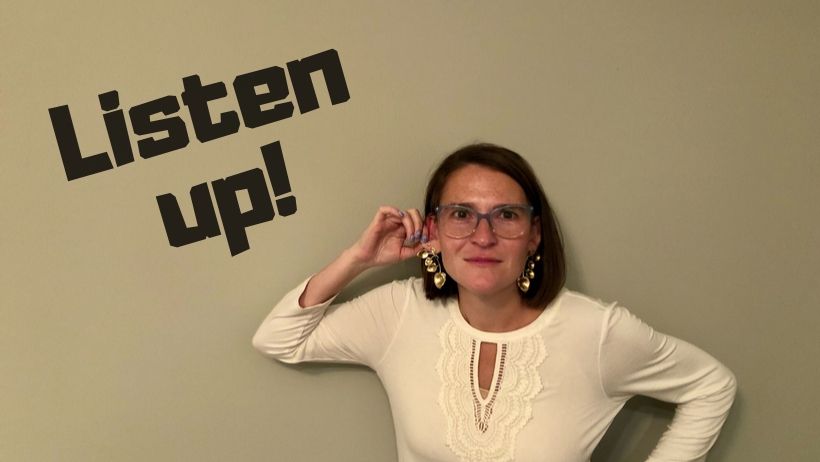I find that my least successful moments in life are when I’m too emotionally worked up to consider my words thoughtfully, and instead I scream, yell, cry, or just whine. I should actually heed the words I use with my children: “I can understand you much better when you’re calm.” Listening can’t be forced. Trying to force someone to listen to you is like trying to force someone to love you. It just doesn’t work that way.

Throughout the Torah, God is giving rules and asking the Israelites, or Abraham, or Isaac, or Jacob, or Moses to listen as they navigate the nation through the journey of life. This week we read the penultimate Torah portion, Parshat Ha’azinu, which has the special honor of being the last section of Torah read on Shabbat morning. Parshat Ha’azinu is a poem which warns of the negative behavior of the Israelites and explains the blessings that will befall them with the good behavior they are capable of. The text ends with Moses ascending the mountain into the clouds as he takes his leave of the Israelite nation. The parshah is the link between generations, between new and old leadership, and between living on earth (in the land of Israel), and living with God (on top of the mountain in the heavens).
The text begins, “Give ear, O heavens, let me speak.” If you imagine the scene, it’s Moses’s final moment with the people. He’s sharing his vision with them and his faith in God. The people, knowing how close they might be to entering the Promised Land, are likely boisterous, loud, dancing, screaming, excited for the moment. And there’s Moses at the top of the mountain, shouting “LISTEN, LISTEN!” Getting all those people to quiet down could not have been easy.
Ha’azinu begs of us not just to listen to ourselves and to others, but to listen even when we’re irrational. And what an appropriate message near the end of the Torah: this part of the story is over, so were you listening? Were you paying attention? And how will you be a better listener the next time around?
– Rabbi Eve Posen



